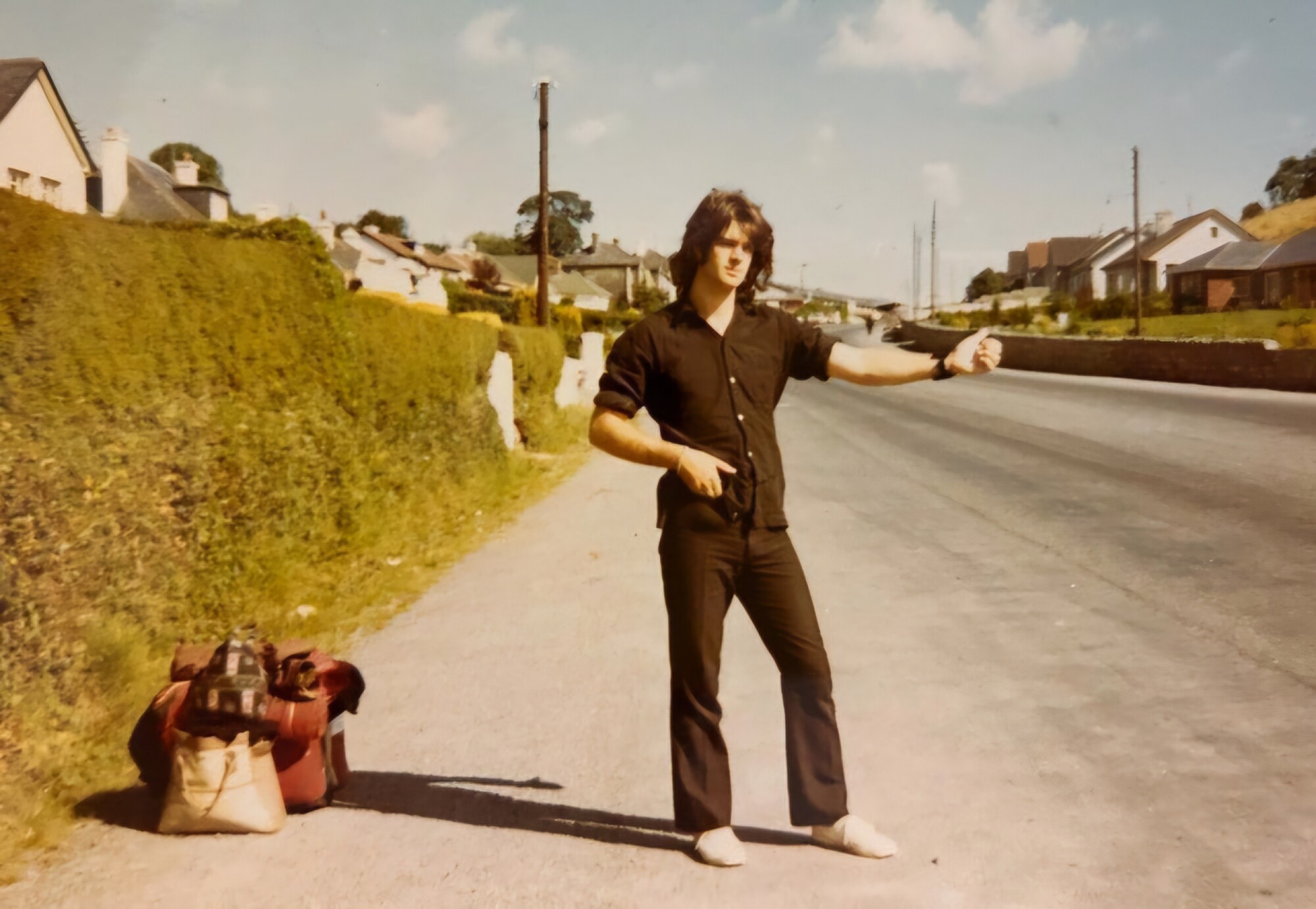NTP | Interview | “Echoes of the Underground”
UK’s NTP was a fleeting spark in the ’60s underground, now resurrected on vinyl from the swirling mists of time.
NTP’s 1972 LP, pressed in fewer than ten copies, represents a significant step forward from their 1969 self-titled effort. This release dives headlong into the underground abyss, melding deceptively simple, druggy ballads with blistering, distorted guitars on basement-bound jams. Over the course of two sides, the record escalates from woozy weirdness to rock-out moments laden with scathing Lennon-esque snark and labyrinthine baroque introspection. It’s the soundtrack to rainy afternoons in a London squat, with OZ magazines strewn about, joss-sticks burning, and the haze of gooseberry wine and Moroccan hash hanging in the air. Packaged in a fully laminated sleeve with a printed inner featuring lyrics, repro original labels, and a Robert Hickson interview insert, this LP is an artifact of a vanished era. Limited to 227 copies, it encapsulates the raw, unvarnished essence of NTP’s sonic rebellion. You don’t want to miss this Bright Carvings release.
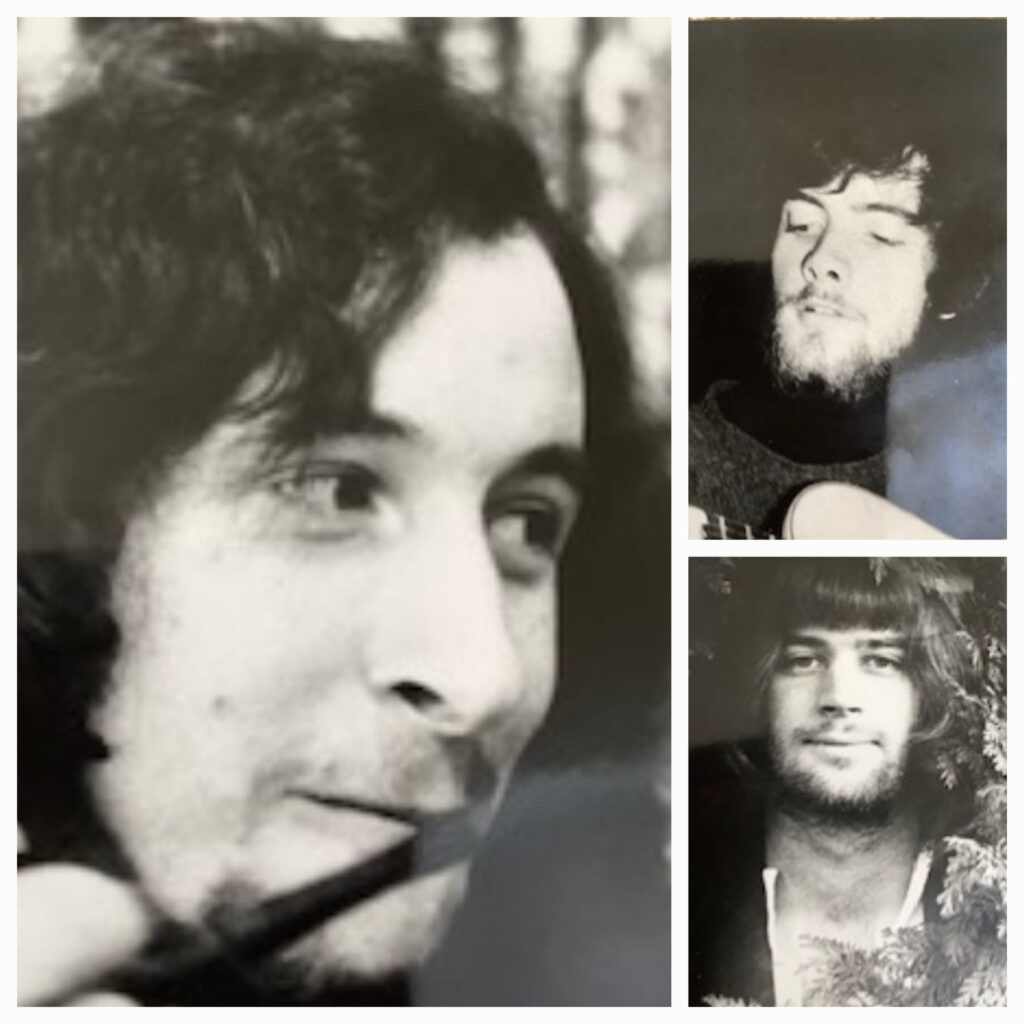
“Normal Temperature and Pressure”
Where and when did you grow up? Was music a big part of your family life? Did the local music scene influence you or inspire you to play music?
Robert Hickson: I grew up in Beaconsfield, England. Jeremy Blackford, a school friend, was my big inspiration. He had the idea of forming a group, even though I could barely play the guitar.
When did you begin playing music? What was your first instrument? Who were your major influences?
In 1967, I started on guitar but also played piano and later bass. Musical influences are maybe largely subconscious, but The Beatles were top. ‘Electric Ladyland’ was a revelation, and Noel Redding’s bass playing was a big influence. Added to that were Paul Butterfield’s ‘East-West,’ Chicago blues, Black American soul, and certain guitarists!
What bands were you a member of prior to the formation of NTP?
NTP was my first band.
Can you elaborate on the formation of NTP?
I was at school with Jeremy Blackford. He decided we would be a group and gig, write, and record. He was the driving influence.
What sort of venues did NTP play early on? Where were they located?
Pubs and folk clubs in Berkshire, England.
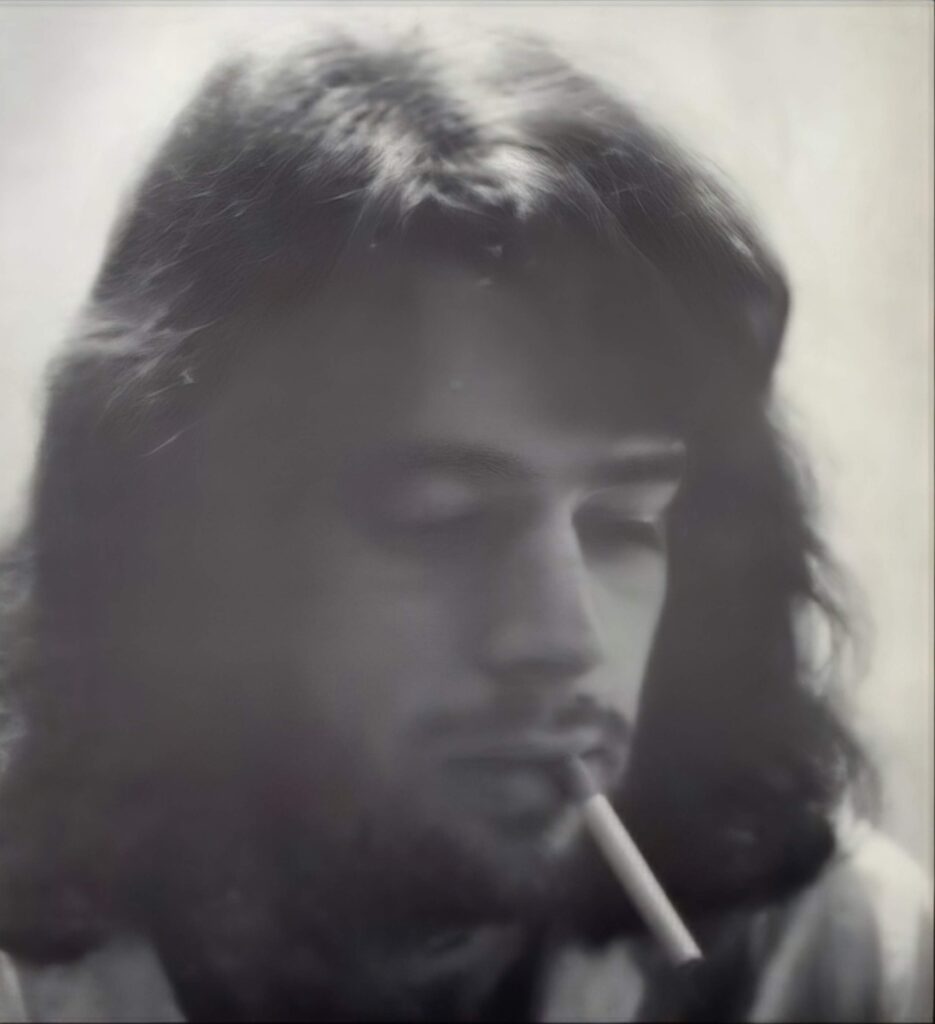
How did you decide to use the name “NTP”?
It was a term from our physics lessons at school: “Normal Temperature and Pressure.” It seemed ironic and appropriate!
What influenced the band’s sound?
Stuff that I mentioned before. We also played Dylan covers.
In 1972, you released the ‘Upstaged’ LP, of which less than ten copies were originally pressed. Was it a private press? Why did you press only ten copies and where did you press it?
We pressed it because we wanted a permanent record of our songs. Tape seemed too fragile. We thought that was what musicians did! We were really setting out to be songwriters. We sent copies off to a couple of labels and kept the rest for friends and family. We didn’t think we’d need more than a few. We used Deroy for the pressing and recorded it ourselves.
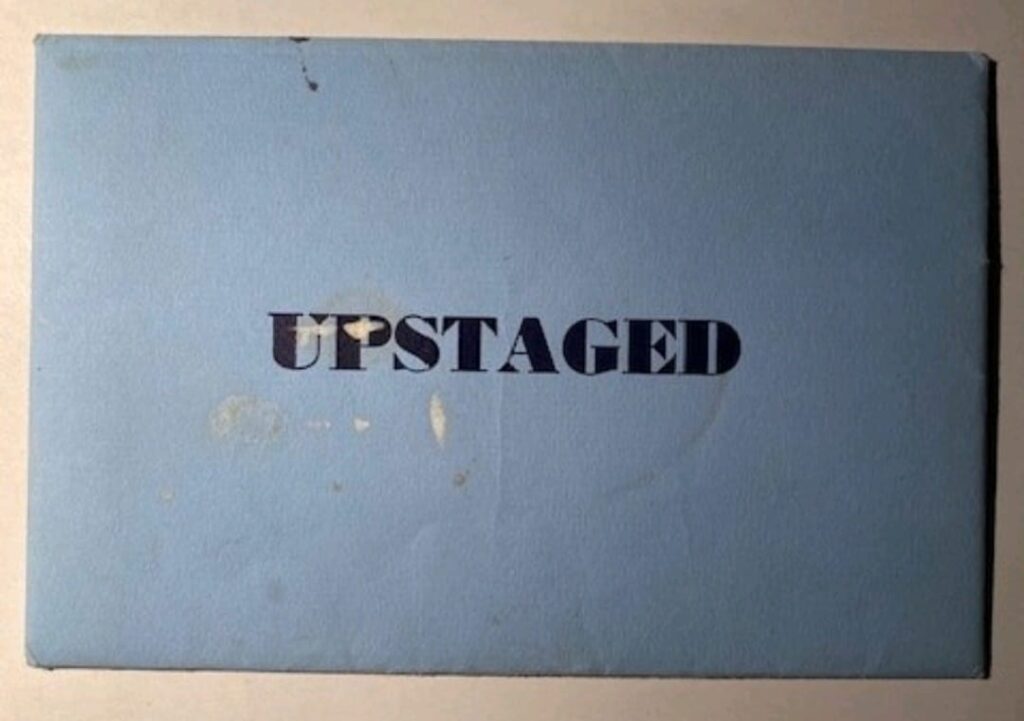
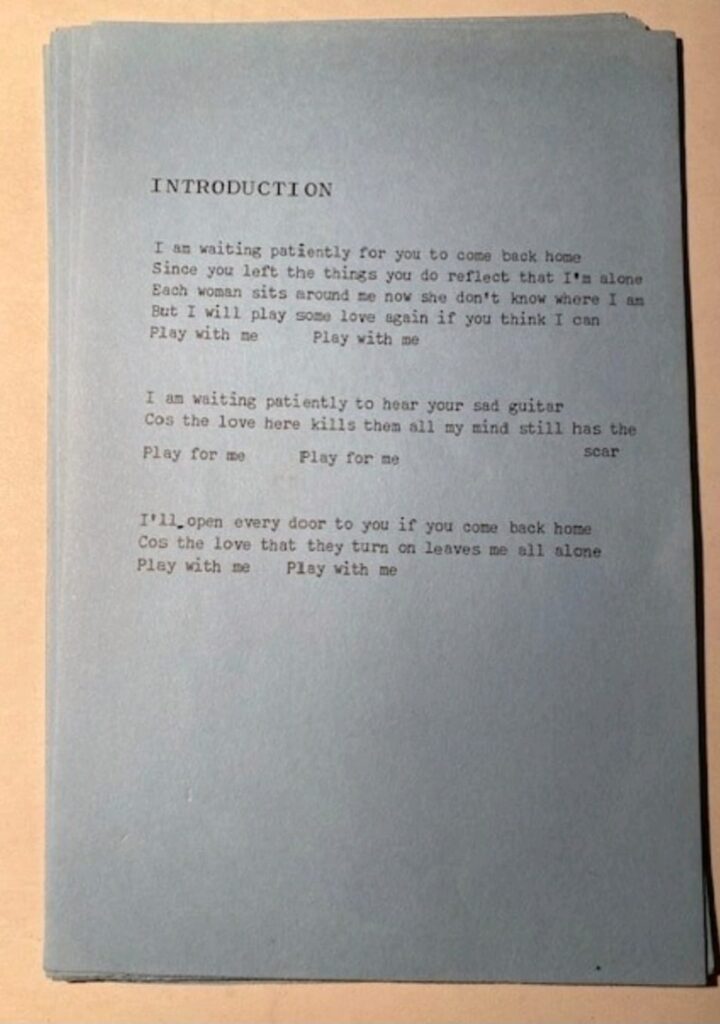
Did you send some to record labels and radios? Did you get any feedback from the press?
A couple to major labels. No!
What can you tell us about the previously existing 10-inch acetate record? When was it recorded? How many original copies exist?
The first 10” LP, from 1969, was vinyl, not acetate. There was a 3-track acetate we recorded in 1967, which we took up to London and played to some publishers. They said they already had Cliff Richard and the Shadows! Obviously, we sounded nothing like that. The 10” LP was followed by ‘NTP 2,’ a full-length LP, and then ‘Towards Autumn,’ again a 12” LP. Each time, we pressed fewer than ten copies, just keeping a “record.”
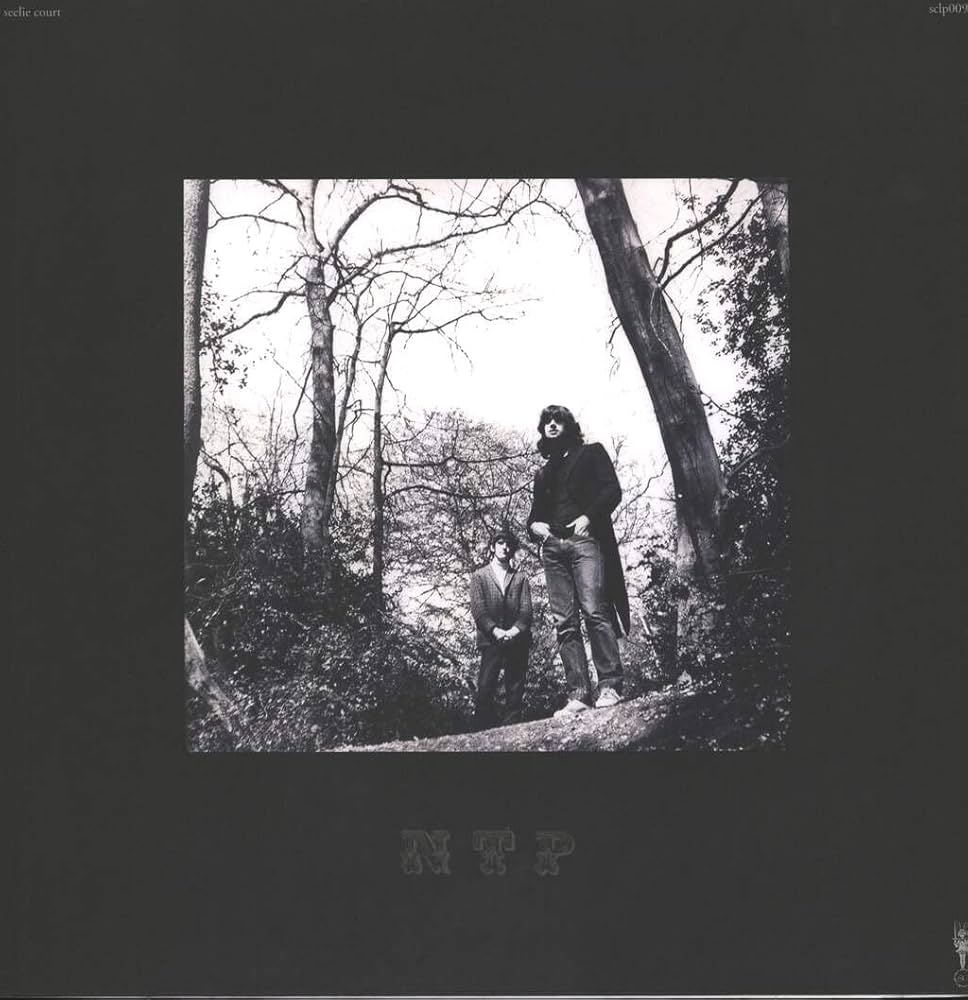
Can you describe the evolution of NTP’s sound between these two albums?
The changes in sound were due to experience as songwriters, tightening up as we gigged, and especially getting increasingly better tape recorders. By the time we recorded ‘Upstaged,’ we had a Revox, which meant we could do all sorts of things we couldn’t previously.
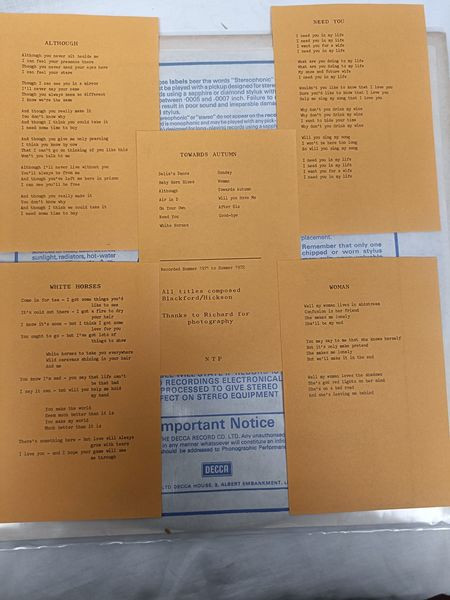
What can you tell us about the recording process of ‘Upstaged?’ Was there any notable equipment or techniques used that contributed to its distinctive sound?
Well, the Revox helped, and a Big Muff fuzz box!
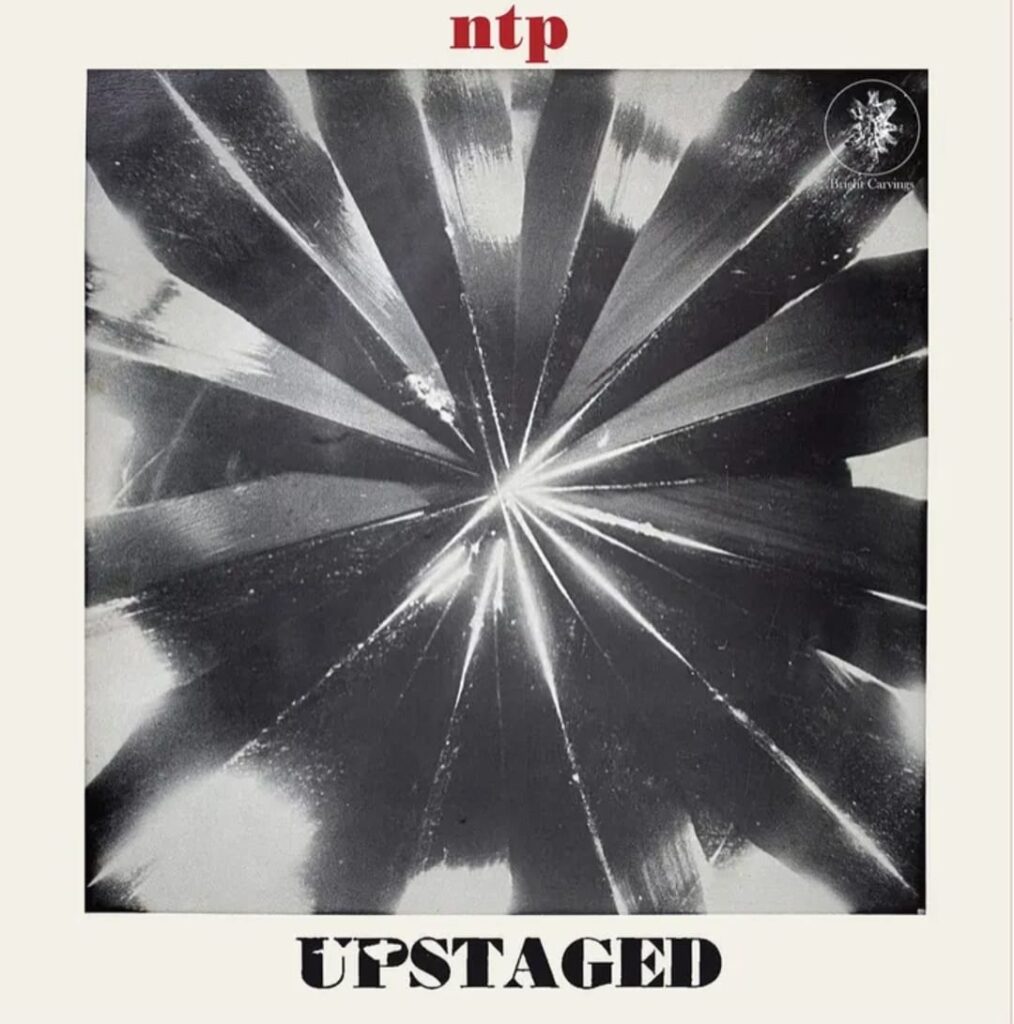
What about on the 10-inch acetate? Tell us about the recording process.
The 10” LP was really just a mic in a room. Given that it stands up pretty well, I think it was a good effort.
Was there a certain concept behind the recordings?
Most of the songs were formed around the basic concept of “I Love You, Why Don’t You Love Me?”
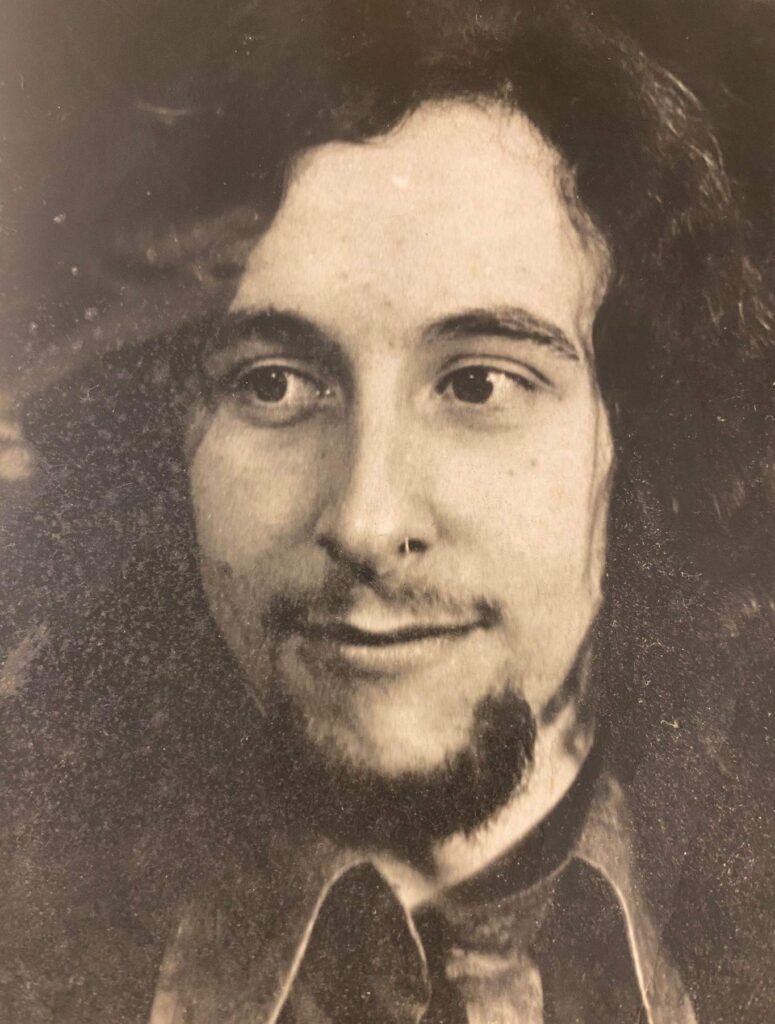
What happened after the band stopped? Were you still in touch with other members? Is any member still involved with music?
Well, Al Spokes, the drummer, died in 1973, which ended the parallel project, The Ultra Smooth Swagger Band, of which he was the leader. This band had a recording contract and a European tour lined up when he died in a car accident. We had gigged with East of Eden and Steamhammer, and things were starting to happen for us. NTP had stopped playing live by then; we were a songwriting/studio operation. Jeremy died a few years ago. I have continued to collaborate with Mick Ford up to now, who I met at university in Manchester and who played on the final NTP LP, ‘Bedrock,’ which was never pressed on vinyl.
Looking back, what was the highlight of your time in the band? Which songs are you most proud of? Where and when was your most memorable gig?
My favorite gig was at a private house party where Jeremy and I were playing ‘Come Together’ as a duo, and suddenly a drummer cut in on the kit set up behind us. It was Al Spokes, and it was the first time we had met him!
Is there any unreleased material? Maybe songs you performed live but never recorded? Or some material you did with other projects later on?
‘Bedrock’ is the NTP LP that never made it to vinyl. We carried on as the USSB after Al’s death: Jeremy, Mick, and I recording music.
What currently occupies your musical life?
My projects with Mick, notably our band Closer Apart with the wonderful Lottie Roach.
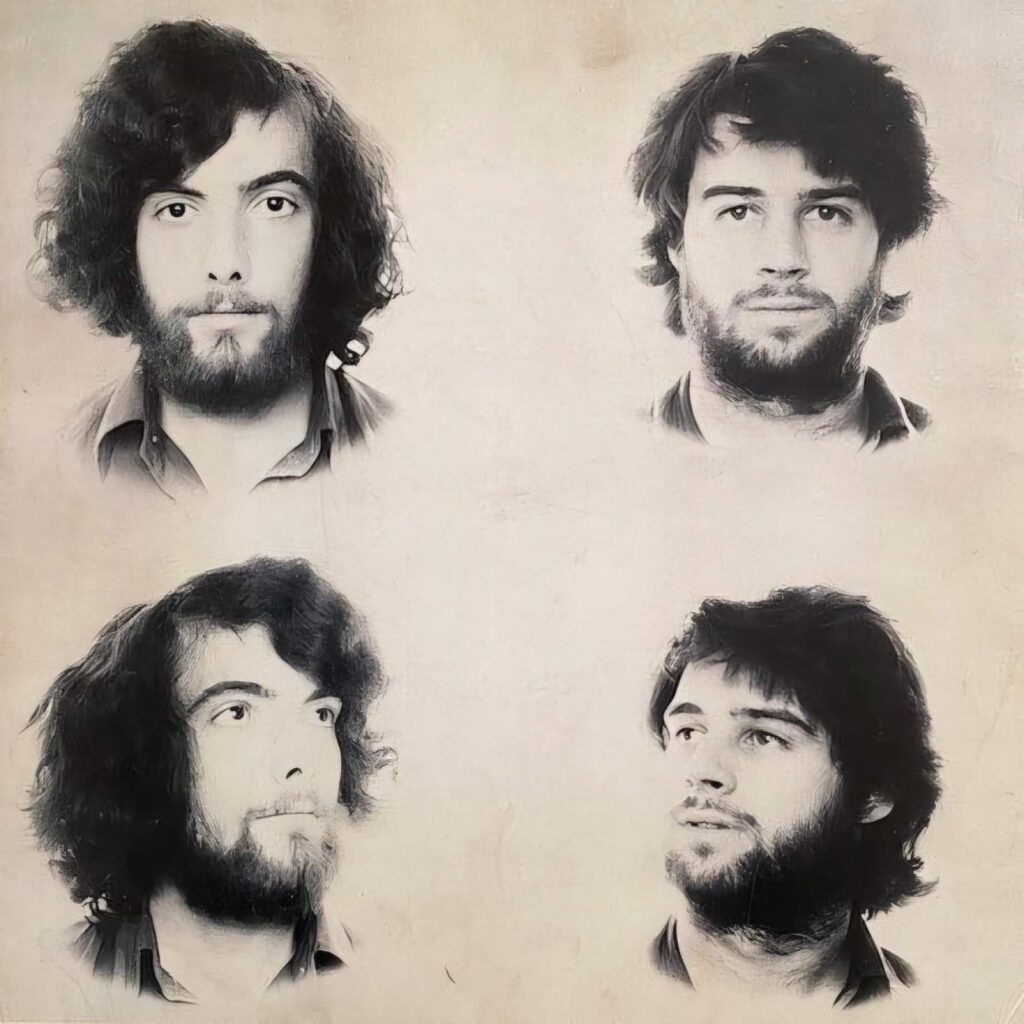
Thank you for taking your time. The last word is yours.
I’m only sorry that Jeremy and Al aren’t with me to drink to this release.
Klemen Breznikar
Headline photo: Robert Hickson
Bright Carvings Official Website / Facebook / Instagram / YouTube

